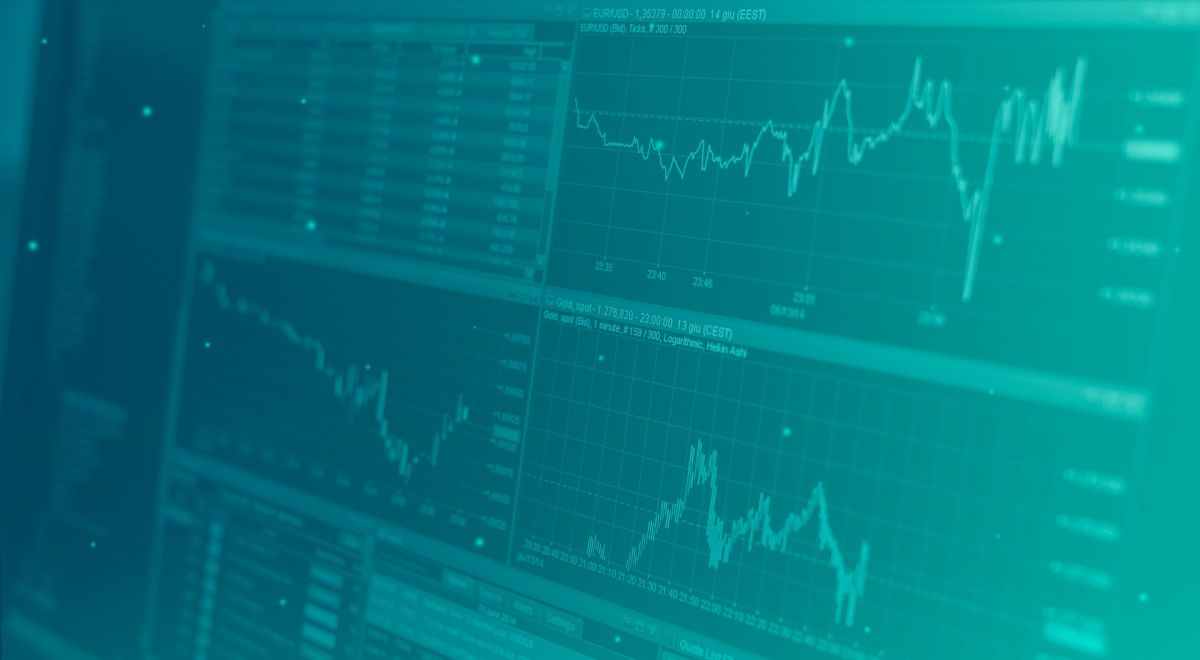In today’s digital world, where financial transactions happen at the click of a button, the importance of cybersecurity in the finance industry cannot be overstated. With hackers becoming increasingly sophisticated and cyber threats on the rise, banks, investment firms, and other financial institutions must remain vigilant in protecting their sensitive data and the assets of their clients. A single breach can have devastating consequences, not only for the affected organization but also for its customers. In this rapidly evolving landscape, maintaining a strong cybersecurity posture is not a luxury; it’s a necessity. Let’s delve into the critical reasons why cybersecurity is paramount in the finance industry and explore the measures that organizations need to adopt to safeguard against cyber threats.
Emerging Threats in the Finance Industry: Necessity for Tightened Cybersecurity Measures
The finance industry is no stranger to cybersecurity threats, and as technology continues to advance, the importance of implementing robust cybersecurity measures becomes increasingly vital. Emerging threats in this industry require a proactive approach to protect sensitive financial information, prevent data breaches, and maintain the trust of customers and clients.
One of the most significant emerging threats in the finance industry is phishing attacks. These deceptive attempts to obtain sensitive information, such as login credentials and credit card details, target both individuals and organizations. Phishing attacks often come in the form of emails, text messages, or phone calls that appear to be from legitimate financial institutions. By enticing recipients to click on malicious links or provide personal information, cybercriminals can gain access to sensitive data and exploit it for financial gain.
- To combat phishing attacks, financial institutions must educate their employees and customers about how to recognize and avoid such scams. This can include conducting regular training sessions, implementing strong password policies, and encouraging the use of two-factor authentication.
- Investing in advanced email filtering systems can help detect and block phishing emails before they reach the target’s inbox.
- Regularly updating software and operating systems is crucial to ensure vulnerabilities are patched and minimized.
Another emerging threat in the finance industry is ransomware attacks. Ransomware is a type of malware that encrypts files on victims’ computers, rendering them inaccessible until a ransom is paid. These attacks can have devastating consequences for financial institutions, resulting in significant financial losses and reputational damage.
| Preventive Measures Against Ransomware Attacks |
|---|
| Regularly backing up critical data and storing it securely offline. |
| Implementing robust endpoint security solutions, such as anti-virus and anti-malware software. |
| Restricting user access privileges to minimize the spread of ransomware within the network. |
In conclusion, the finance industry must prioritize strengthening cybersecurity measures to protect against emerging threats. By implementing proactive strategies, educating employees and customers, and investing in advanced technologies, financial institutions can mitigate the risks associated with cyber attacks and safeguard sensitive financial information.
Implications of Cyberattacks on Financial Institutions: Understanding the Financial Fallout and Reputation Damage
The Importance of Cybersecurity in the Finance Industry
In today’s digital era, where financial transactions are predominantly conducted online, the finance industry faces a growing threat of cyberattacks. These attacks not only have severe financial implications for institutions but also cause significant damage to their reputation. Understanding the financial fallout and reputation damage resulting from cyberattacks is crucial in highlighting the importance of cybersecurity in the finance industry.
Financial institutions, such as banks and investment firms, are prime targets for cybercriminals due to the vast amount of sensitive customer data they possess and the potential monetary gains. When these institutions fall victim to cyberattacks, the financial fallout can be immense. From direct financial losses due to funds stolen or fraudulently transferred to the costs incurred in investigating and rectifying the breach, the impact on both the institution and its customers can be devastating.
Furthermore, the aftermath of a cyberattack can severely tarnish the reputation of a financial institution. Customers place immense trust in these institutions to safeguard their financial information, and a breach can shatter that trust. The negative publicity surrounding a cyberattack can lead to customer attrition, as individuals seek out more secure alternatives. Rebuilding this reputation can be a daunting task, requiring significant investments in both financial resources and time.
To mitigate the financial fallout and reputation damage caused by cyberattacks, the finance industry must prioritize cybersecurity. This involves implementing robust security measures, such as multi-factor authentication, encryption protocols, and continuous monitoring of systems for any suspicious activities. Regular employee training sessions on cybersecurity best practices are also essential to ensure a strong defense against evolving threats. By investing in cybersecurity, financial institutions can protect themselves and their customers, ensuring the integrity of the finance industry in the digital landscape.
In conclusion, cyberattacks on financial institutions have grave implications, both in terms of the financial fallout and reputation damage. The finance industry must recognize the importance of cybersecurity and take proactive measures to defend against these threats. Only by doing so can institutions safeguard customer trust, protect their finances, and maintain a strong and secure financial system.
Building a Robust Cybersecurity Framework: Key Recommendations and Best Practices for the Finance Industry
The Finance industry plays a critical role in our global economy, handling vast amounts of sensitive financial data and transactions every day. With the rise of digital technologies and online banking, it has become imperative for financial institutions to prioritize cybersecurity. In today’s interconnected world, the importance of robust cybersecurity measures cannot be emphasized enough. It is crucial for the finance industry to build a strong cybersecurity framework that can withstand evolving threats and safeguard both their own interests and those of their customers.
To achieve this, there are key recommendations and best practices that financial institutions should consider implementing. Firstly, conducting regular risk assessments is essential. By identifying potential vulnerabilities and assessing the potential impact of cyber threats, organizations can proactively develop mitigation strategies and allocate resources effectively. Additionally, establishing a strong incident response plan ensures that any cyberattacks or breaches can be promptly detected, contained, and resolved, minimizing the financial and reputational damage.
Implementing multi-factor authentication, encryption technologies, and network segmentation are also crucial steps to enhance cybersecurity. These measures significantly reduce the risk of unauthorized access, data breaches, and system compromises. Regular employee training and awareness programs are equally vital, as the majority of cybersecurity incidents are caused by human error. By educating employees about potential threats, safe browsing habits, and the importance of strong passwords, financial institutions can create a culture of cybersecurity awareness.
Furthermore, partnering with trusted cybersecurity vendors and engaging in industry collaborations can provide valuable insights and expertise. Staying informed about the latest cybersecurity trends, regulations, and best practices is essential in the ever-evolving landscape of cyber threats. By continually updating their cybersecurity framework and reinforcing its effectiveness, financial institutions can maintain the trust of their customers and safeguard crucial financial information.
In conclusion, cybersecurity is of paramount importance in the finance industry. Implementing a robust cybersecurity framework not only protects financial institutions from potential cyberattacks but also helps maintain the stability and trust of the global financial system. By following key recommendations and best practices, financial institutions can mitigate risks, reduce vulnerabilities, and ensure the long-term cybersecurity resilience of their operations. And that, my friends, is why cybersecurity is the unsung hero of the finance industry! From the moment your fingers tap on that keyboard to make a simple transaction, to the intricate algorithms that protect your sensitive data, it’s the shield that keeps the bad guys at bay.
In a world where technology is advancing at lightning speed, we need to shake off any complacency and acknowledge that without proper cybersecurity measures, we are leaving our financial systems vulnerable to attacks. It’s like having a fortress with grabby hands instead of secured walls – a disaster waiting to happen.
But let’s not focus on the doom and gloom. Instead, let’s be amazed by the marvels that cybersecurity has brought us. It has provided us with a sense of security in the ever-changing landscape of the finance industry. Ensuring our money is safe behind layers of encryption, firewalls, and biometric authentication has become second nature.
Sure, there are occasional breaches – after all, hackers are like sneaky ninjas lurking in the shadows. But thanks to the diligent efforts of cybersecurity experts and their cutting-edge tools, these attacks are quickly detected, contained, and neutralized. It’s like having a squad of elite cyber soldiers busting in, ready to protect and serve.
So, let us remember the importance of this unseen hero, standing guard against the unseen dangers of the digital world. It’s what keeps our bank accounts secure, our transactions seamless, and our peace of mind intact.
Next time you open that banking app, take a moment to appreciate the digital warriors tirelessly working behind the scenes. They may not wear capes, but their superpower is protecting your hard-earned cash.
Now, armed with this newfound knowledge, let’s trust in the power of cybersecurity and continue embracing the wonders of digital finance. Feel safe, feel secure, and embark on a future where the only thing we have to worry about is paying off our credit cards.
Until next time, stay cyber-safe, my friends!
MKTPlace is a leading digital and social media platform for traders and investors. MKTPlace offers premiere resources for trading and investing education, digital resources for personal finance, news about IoT, AI, Blockchain, Business, market analysis and education resources and guides.













